Navigating the World of Skincare: A Comprehensive Guide to the Best Products for Every Need
Related Articles: Navigating the World of Skincare: A Comprehensive Guide to the Best Products for Every Need
Introduction
With great pleasure, we will explore the intriguing topic related to Navigating the World of Skincare: A Comprehensive Guide to the Best Products for Every Need. Let’s weave interesting information and offer fresh perspectives to the readers.
Table of Content
Navigating the World of Skincare: A Comprehensive Guide to the Best Products for Every Need

Skincare is an essential aspect of overall health and well-being. It encompasses a wide range of practices and products aimed at maintaining and improving the health, appearance, and feel of our skin. The market is saturated with countless options, making it challenging to navigate and find the most effective products for individual needs. This comprehensive guide provides an in-depth analysis of the best skincare products, addressing common concerns and offering practical advice for building a personalized routine.
Understanding Skin Types and Concerns
The first step in selecting the right skincare products is identifying your skin type and concerns. Understanding these factors helps you choose products that effectively address your specific needs.
Skin Types:
- Normal Skin: This skin type is balanced, with no excessive dryness or oiliness. It generally exhibits a healthy, smooth texture and minimal breakouts.
- Dry Skin: Characterized by a lack of moisture, dry skin feels tight, rough, and may flake. It can also be sensitive and prone to irritation.
- Oily Skin: This skin type produces excess sebum, leading to a shiny appearance, enlarged pores, and a higher risk of acne.
- Combination Skin: This type combines characteristics of both dry and oily skin. Typically, the T-zone (forehead, nose, and chin) is oilier, while the cheeks are drier.
- Sensitive Skin: This skin type is easily irritated by external factors like harsh chemicals, fragrances, and even temperature changes. It may exhibit redness, itching, burning, or dryness.
Common Skin Concerns:
- Acne: Characterized by blemishes, pimples, whiteheads, and blackheads, acne is caused by excess oil production, clogged pores, and bacteria.
- Hyperpigmentation: This refers to areas of darkened skin caused by excessive melanin production, often triggered by sun exposure, inflammation, or hormonal changes.
- Fine Lines and Wrinkles: These are visible signs of aging, caused by collagen breakdown and loss of skin elasticity.
- Dryness and Dehydration: These are common concerns, especially in dry climates or during winter. Dryness results from a lack of moisture, while dehydration is caused by insufficient water intake.
- Rosacea: This condition causes facial redness, flushing, and visible blood vessels, often accompanied by bumps and pustules.
The Essential Skincare Routine
A basic skincare routine should include the following steps, adapted to your specific skin type and concerns:
1. Cleansing:
Cleansing removes dirt, oil, makeup, and environmental pollutants that accumulate on the skin throughout the day.
- For Normal Skin: Look for gentle, pH-balanced cleansers that don’t strip the skin of its natural oils.
- For Dry Skin: Opt for creamy cleansers that provide hydration and nourishment.
- For Oily Skin: Choose oil-free, gel-based cleansers that effectively remove excess sebum without drying out the skin.
- For Sensitive Skin: Select fragrance-free, hypoallergenic cleansers designed for sensitive skin.
2. Exfoliation:
Exfoliation removes dead skin cells, revealing smoother, brighter skin and improving the absorption of other skincare products.
- Physical Exfoliation: This involves using scrubs with abrasive particles to remove dead cells. It is generally recommended for normal to oily skin.
- Chemical Exfoliation: This method uses acids like glycolic acid, salicylic acid, or lactic acid to dissolve the bonds between dead skin cells. It is suitable for all skin types, including sensitive skin, when used at appropriate concentrations.
3. Toning:
Toners help restore the skin’s pH balance, tighten pores, and prepare the skin for the next steps in your routine.
- Alcohol-Free Toners: These are gentler on the skin and are suitable for all skin types.
- Astringent Toners: Containing alcohol, these toners are typically used for oily skin to control excess sebum production.
4. Serums:
Serums are concentrated formulas designed to target specific skin concerns, such as hyperpigmentation, wrinkles, or acne.
- Vitamin C Serums: These serums are known for their antioxidant properties, brightening effects, and collagen-boosting benefits.
- Retinol Serums: These serums are powerful anti-aging agents that promote cell turnover, reduce wrinkles, and improve skin texture.
- Hyaluronic Acid Serums: These serums are highly hydrating, attracting and retaining moisture to plump up the skin.
5. Moisturizing:
Moisturizers hydrate the skin, prevent dryness, and protect the skin barrier.
- For Normal Skin: Look for lightweight, oil-free moisturizers.
- For Dry Skin: Opt for rich, creamy moisturizers that provide intense hydration.
- For Oily Skin: Choose oil-free, gel-based moisturizers that won’t clog pores.
- For Sensitive Skin: Select fragrance-free, hypoallergenic moisturizers designed for sensitive skin.
6. Sun Protection:
Sun protection is crucial for preventing premature aging, hyperpigmentation, and skin cancer.
- Sunscreens: Choose broad-spectrum sunscreens with an SPF of 30 or higher and reapply every two hours, especially after swimming or sweating.
- Sun-Protective Clothing and Accessories: Wear hats, sunglasses, and clothing that covers exposed skin to further minimize sun exposure.
Best Products for Specific Skin Concerns
Acne:
- Salicylic Acid: This beta-hydroxy acid (BHA) effectively penetrates pores to dissolve oil and dead skin cells, preventing acne breakouts.
- Benzoyl Peroxide: This topical medication kills acne-causing bacteria and reduces inflammation.
- Tea Tree Oil: This essential oil has antibacterial and anti-inflammatory properties, making it effective for spot treatment of acne.
Hyperpigmentation:
- Vitamin C: This potent antioxidant helps reduce melanin production, fading dark spots and evening out skin tone.
- Hydroquinone: This prescription-strength skin-lightening agent inhibits melanin production.
- Kojic Acid: This natural ingredient derived from mushrooms inhibits melanin production, promoting brighter, more even skin.
Fine Lines and Wrinkles:
- Retinol: This vitamin A derivative promotes collagen production, reduces wrinkles, and improves skin texture.
- Peptides: These molecules stimulate collagen synthesis, improving skin elasticity and reducing the appearance of wrinkles.
- Hyaluronic Acid: This hydrating ingredient plumps up the skin, making fine lines and wrinkles less noticeable.
Dryness and Dehydration:
- Hyaluronic Acid: This potent humectant attracts and retains moisture, deeply hydrating the skin.
- Ceramides: These lipids are naturally found in the skin and help maintain the skin barrier, preventing moisture loss.
- Glycerin: This humectant attracts moisture from the air, keeping the skin hydrated.
Rosacea:
- Green Tea Extract: This natural ingredient has anti-inflammatory properties that can help reduce redness and inflammation.
- Azelaic Acid: This topical medication reduces redness, inflammation, and bumps associated with rosacea.
- Metronidazole: This prescription-strength medication helps control rosacea symptoms.
Tips for Effective Skincare
- Consistency is Key: Maintain a consistent skincare routine for optimal results.
- Patch Testing: Before applying a new product to your entire face, test it on a small area of skin to check for any adverse reactions.
- Listen to Your Skin: Pay attention to how your skin responds to different products and adjust your routine accordingly.
- Read Labels Carefully: Choose products that are appropriate for your skin type and concerns.
- Clean Your Brushes and Tools Regularly: This prevents bacteria buildup and ensures hygiene.
- Protect Your Skin from the Sun: Sun protection is crucial for maintaining healthy skin and preventing premature aging.
- Consult a Dermatologist: If you have persistent skin concerns, consult a dermatologist for professional advice and treatment.
Frequently Asked Questions (FAQs)
Q: How often should I cleanse my face?
A: Ideally, cleanse your face twice a day, once in the morning and once at night.
Q: Is it necessary to use a toner?
A: While toners are not essential, they can be beneficial for restoring the skin’s pH balance, tightening pores, and preparing the skin for subsequent products.
Q: What is the difference between a serum and a moisturizer?
A: Serums are concentrated formulas designed to target specific skin concerns, while moisturizers hydrate and protect the skin barrier.
Q: How often should I exfoliate?
A: Exfoliation frequency depends on your skin type. Normal to oily skin can exfoliate 2-3 times per week, while dry or sensitive skin may only need to exfoliate once a week.
Q: What is the best way to apply sunscreen?
A: Apply sunscreen liberally to all exposed skin, including the face, neck, ears, and hands. Reapply every two hours, especially after swimming or sweating.
Conclusion
Building a successful skincare routine requires understanding your skin type, concerns, and the best products to address them. By implementing a consistent routine that includes cleansing, exfoliation, toning, serums, moisturizing, and sun protection, you can achieve healthy, radiant skin. Remember to choose products tailored to your individual needs, pay attention to how your skin reacts, and consult a dermatologist if you have any persistent concerns. With careful selection and consistent care, you can cultivate the healthy, glowing skin you deserve.

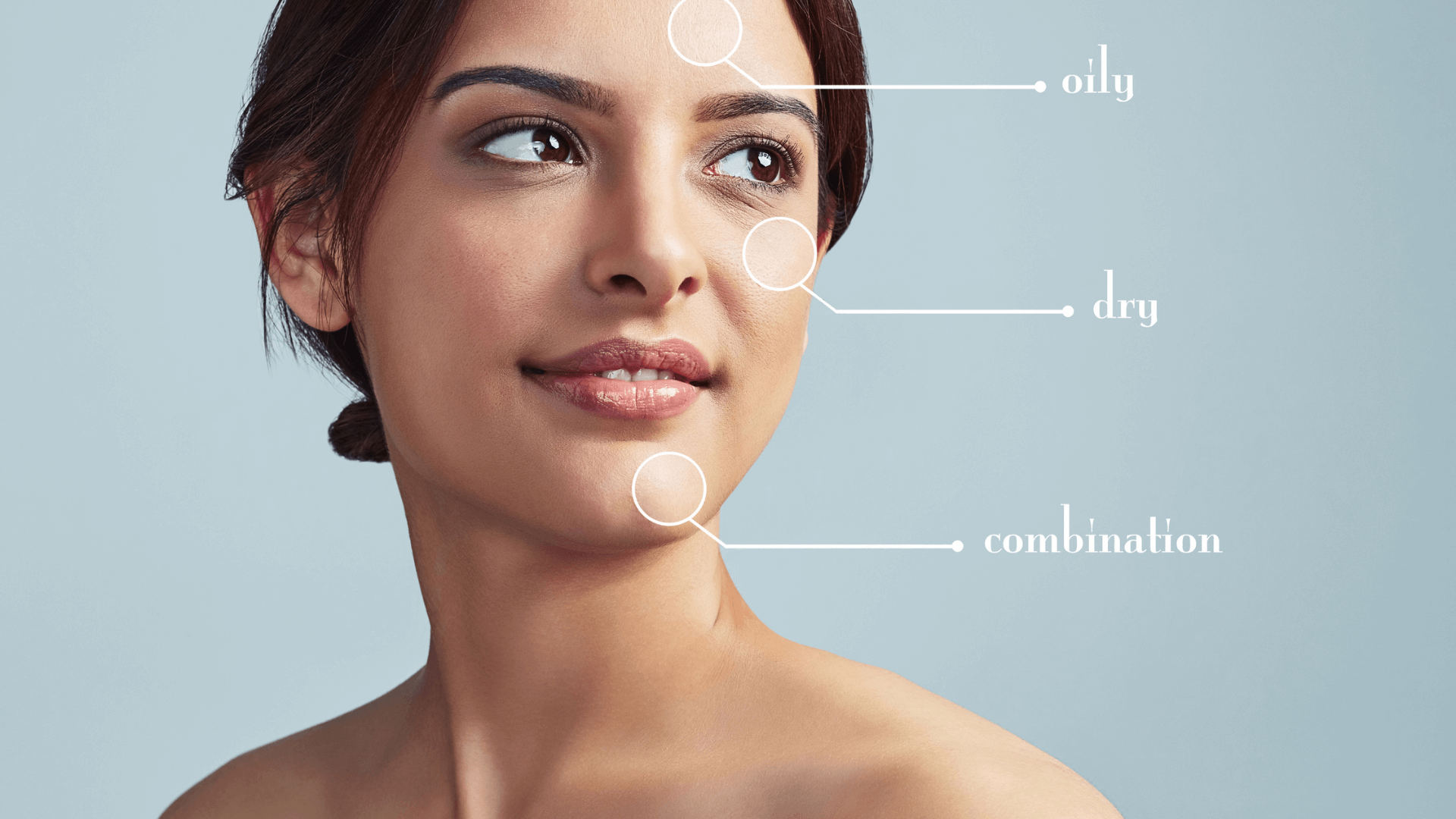
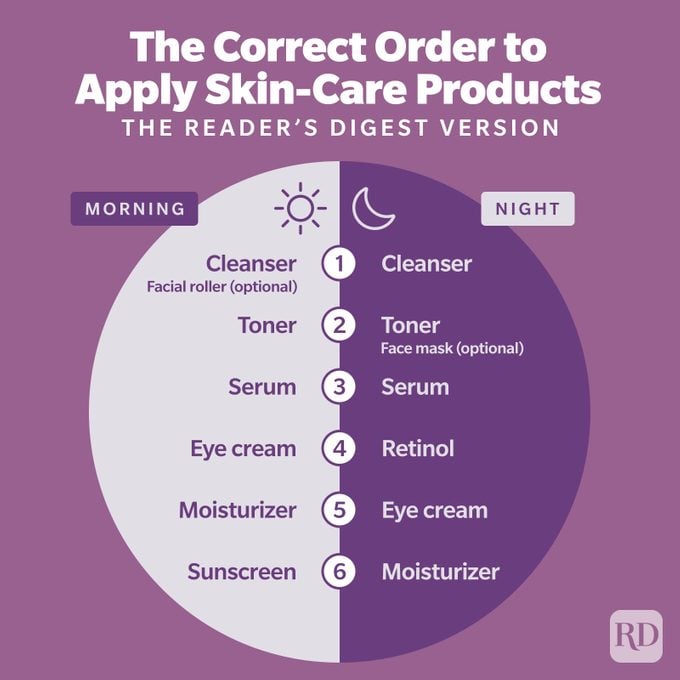
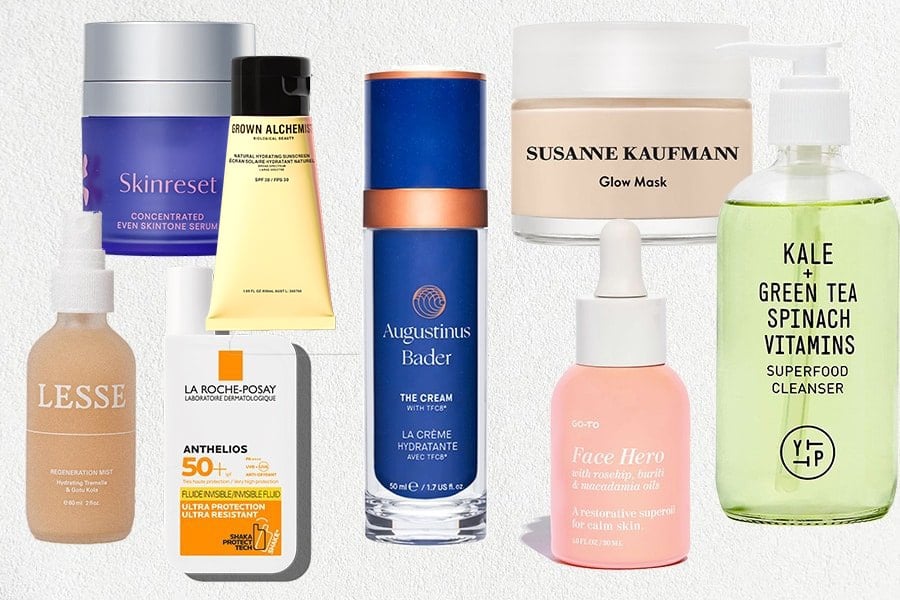

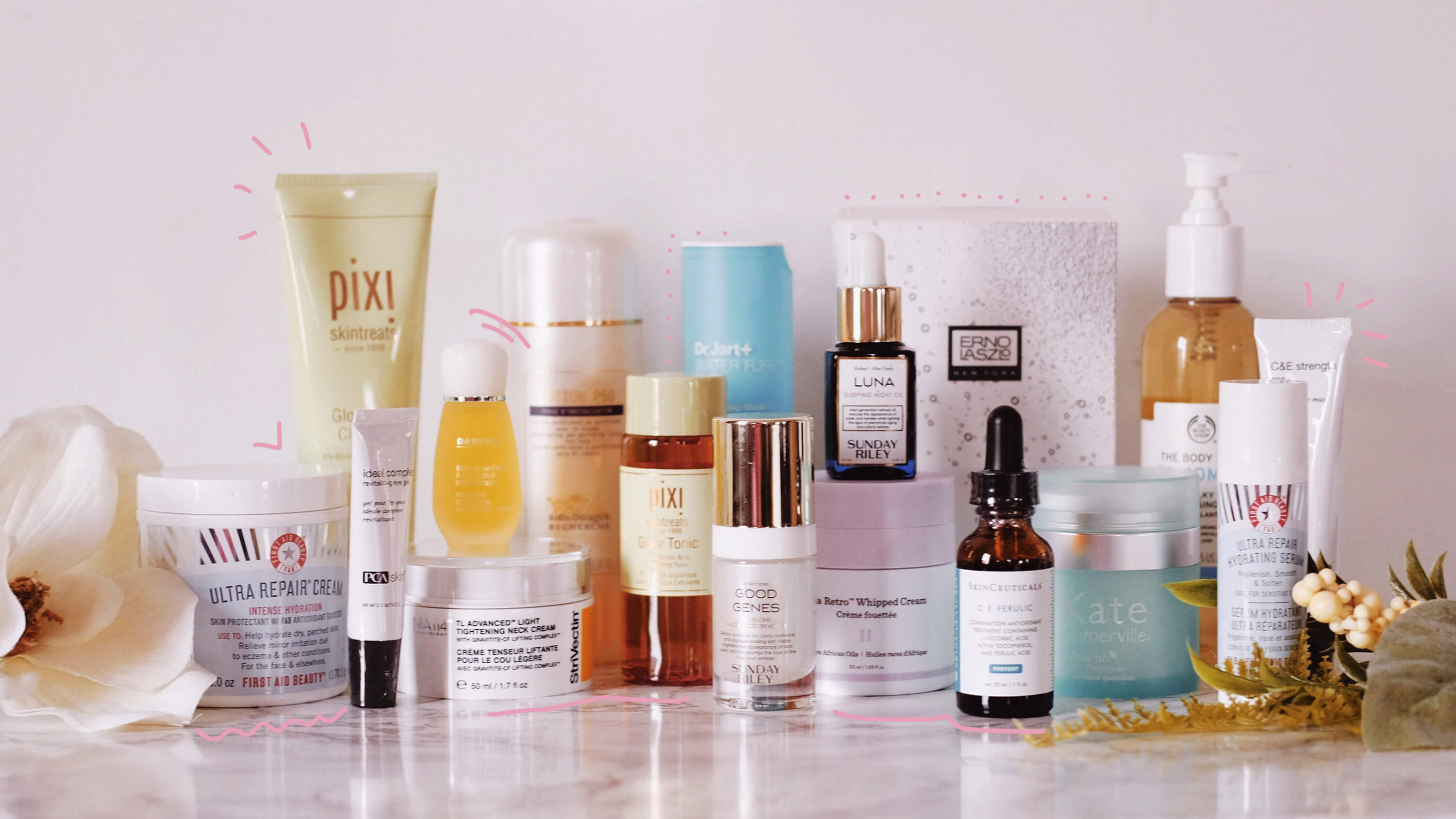
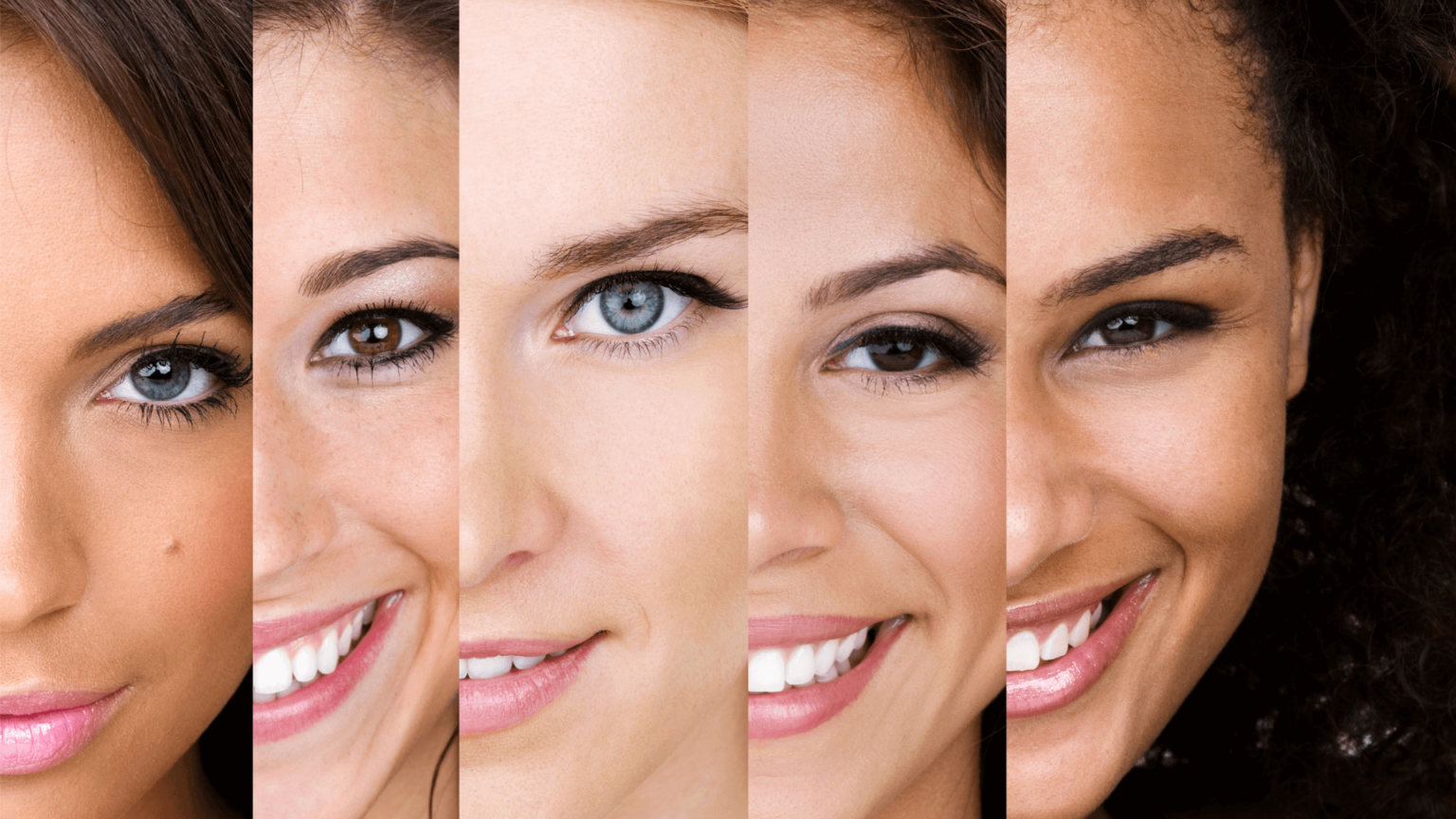

Closure
Thus, we hope this article has provided valuable insights into Navigating the World of Skincare: A Comprehensive Guide to the Best Products for Every Need. We thank you for taking the time to read this article. See you in our next article!